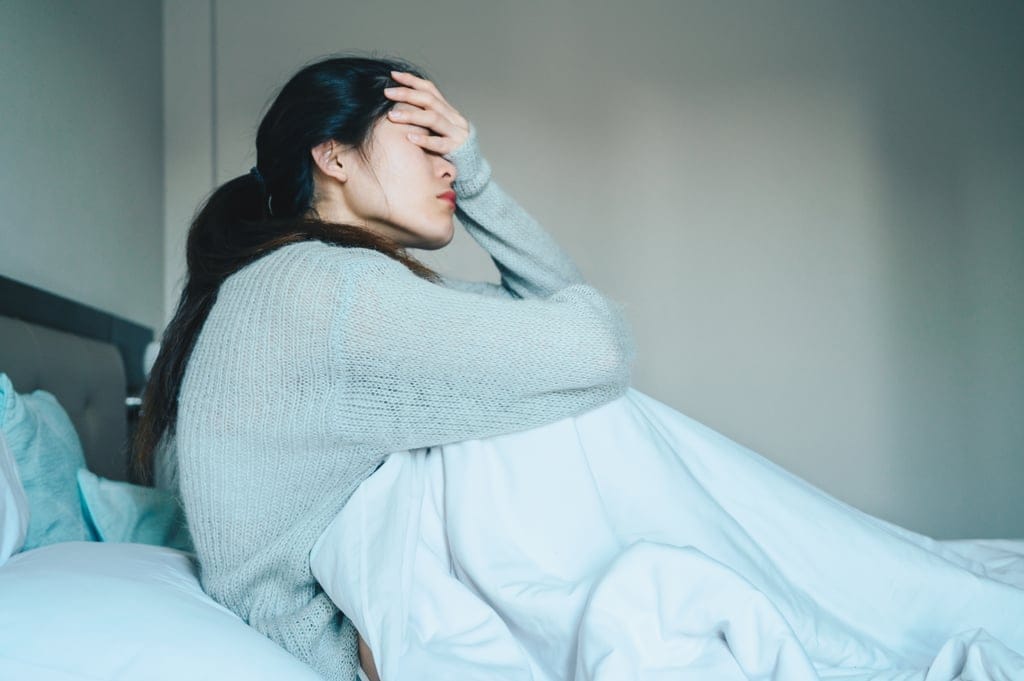If you’ve ever worried whether you can have the flu and COVID at the same time, the headlines about “flurona” may have sent you into a fresh panic. Israel’s first case of a patient (an unvaccinated, pregnant woman) doubly diagnosed with flu and COVID-19, or what some have called “flurona,” has been widely reported.
Now, another case in an unvaccinated Los Angeles teen, reported on Jan. 5, is driving more fear. Note that “flurona” is not an official medical term or condition.
Though it may seem new, the US has had cases of these dual diseases as far back as spring 2020. So by August 2020, experts were warning about a possible “twindemic“, where flu season converges with a surge in COVID cases. During the normal flu season from 2020 to 2021, it didn’t happen, and flu cases were actually much lower, possibly because of social distancing and mask wearing.
But this year may be different. Chicago-based internal medicine physician Dr. Vivek Cherian, MD said, “Since our last flu season was quite mild, the growing concern in the medical community is the possibility of a significantly worse flu season this year due to reduced population immunity.” This means more cases of COVID and flu may occur.
What Are “Flurona” Symptoms?
There are no specific symptoms for “flurona” alone, which is not an actual condition. Rather a patient may experience the common symptoms of both flu and COVID, many of which overlap. According to the CDC, flu symptoms include:
- Fever or feeling feverish/chills
- Cough
- Sore throat
- Runny nose
- Muscle or body aches
- Headache
- Fatigue
- Some may experience vomiting or diarrhea (mostly children)
According to the NCDC, COVID-19 symptoms include:
- Fever or chills
- Cough
- Shortness of breath or difficulty breathing
- Fatigue
- Muscle or body aches
- Headache
- New loss of taste or smell
- Sore throat
- Congestion or runny or nose
- Nausea or vomiting
- Diarrhea
If you are having these symptoms, talk to your doctor and discuss getting testing. Since these are two separate infections, there is no single test, so you’ll need to get tested for both.
Who Is at Risk For Contracting “Flurona?”
People should realize that the idea of being infected with more than one different pathogen isn’t uncommon at all, said Dr. Cherian. People who’ve had COVID could very well have also had the flu. But it’s difficult to say since both COVID-19 and influenza tend to have similar symptoms including fatigue, headaches, runny nose, or a cough (to name a few). The people who would be most at risk for severe illness would be the elderly and those who are immunocompromised.
How Dangerous Is “Flurona?”
Unfortunately, the jury is still out, as there isn’t enough data or statistics to know for sure how dangerous it could be to have the flu and COVID at the same time. Doctors don’t have the data yet regarding the severity of co-infection, or whether or not vaccination for COVID reduces the likelihood of a co-infection.
Dr. Cherian did say the idea of a person (particularly the elderly or immunocompromised) fighting a dual infection is worrisome because both COVID and influenza affect the lungs. On their own, each illness can possibly have very serious outcomes that can lead to many things going wrong (organ failure and worst case, death). We’re not sure yet if co-infection would lead to more serious outcomes, or how vaccination affects the severity of dual illnesses.
How Can You Prevent “Flurona?”
The best way to arm yourself against getting both infections simultaneously, informed Dr. Cherian, is to make sure you’ve had your flu shot and are fully vaccinated against COVID, including a booster shot if eligible. He added to also continue adhering to the same public safety guidelines you’ve been following: wearing a mask, washing your hands often, social distancing, avoiding indoor congregate settings, and staying home if you feel ill to prevent the spread of germs.
GLAMCITYZ aims to give you the most accurate and up-to-date information about the coronavirus, but details and recommendations about this pandemic may have changed since publication. For the latest information on COVID-19, please check out resources from the WHO and the NCDC
This article was originally published on Popsugar
























